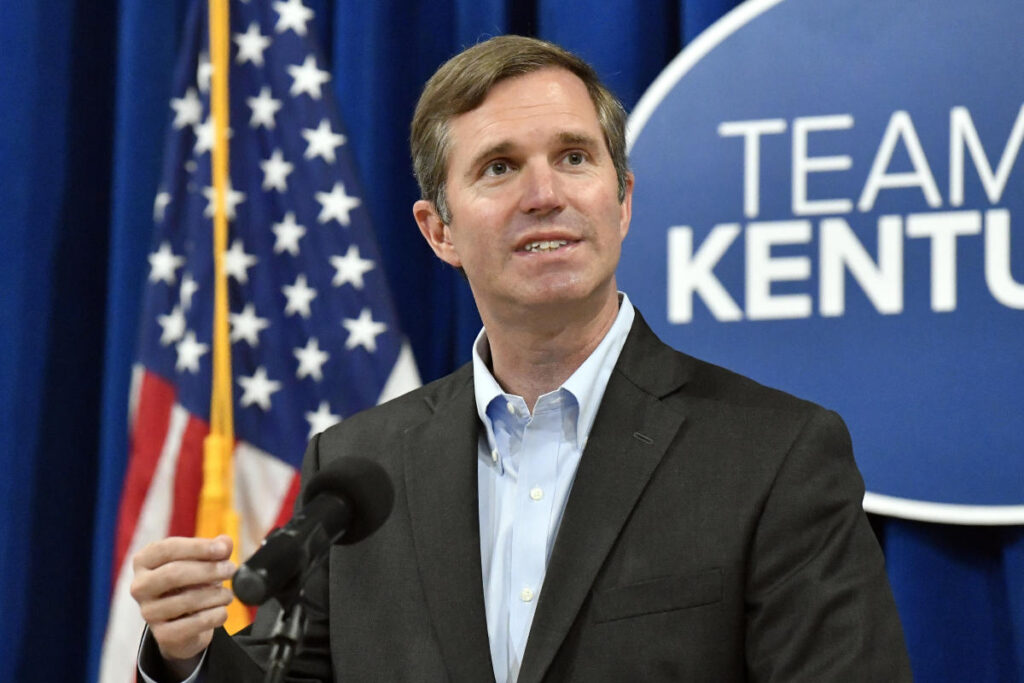In a recent appearance on ABC’s “This Week,” Kentucky Governor Andy Beshear vehemently criticized former President Donald Trump and his running mate, JD Vance, for their refusal to accept the reality of the 2020 presidential election results. Beshear stated that their blatant denial reflects a larger issue regarding beliefs in democracy and accountability in leadership. He emphasized the need for a Vice President who recognizes the legitimacy of elections, suggesting that such fundamental acceptance is crucial for restoring public trust in the political process. Beshear, a Democrat, argued that acknowledging the outcome of elections is not merely a political stance but a requirement for any leader who represents the American people.
Vance, during his appearance on the same program, reiterated his stance on the 2020 election, stating he believed there were problems without explicitly conceding that Trump lost. His comments have been consistent, shaping a narrative that suggests election integrity concerns rather than outright acceptance of the electoral outcome. Vance highlighted issues like perceived censorship by technology firms and its implications on voter rights, which he claims influenced the election discussions. By framing the election’s legitimacy in terms of technology and misinformation, Vance avoids directly confronting the issue of Trump’s loss, providing him an angle that aligns with his base’s sentiments.
Beshear further criticized Trump and Vance for their handling of misinformation regarding Federal Emergency Management Agency (FEMA) disaster relief, specifically during recent crises like Hurricane Helene and Hurricane Milton. He stressed the importance of accurate information when responding to natural disasters, stating that misinformation could lead to real harm for victims relying on relief assistance. Referring to the initial $750 disbursed to affected individuals, Beshear cautioned that misinformation about available aid could deter people from seeking necessary assistance. This assertion underscores the consequential nature of political communication, especially during times of crisis, and highlights Beshear’s commitment to serving the needs of his constituents.
The governor argued that intentional misinformation can be damaging and inappropriate, especially when it revolves around people’s livelihoods during disasters. He reflected on his own experiences leading during Kentucky’s worst tornado and flood disasters, asserting that he never faced the type of misleading narratives that Trump perpetuates. His concern extends beyond political disagreements; he emphasizes the ethical responsibility of leaders to communicate truthfully, especially regarding disaster recovery. Beshear’s focus on the human impact of political discourse reveals a deeper commitment to compassion and community care in governance.
When asked why the political landscape remains contentious despite these issues, Beshear attributed the tight race in upcoming elections to heightened partisanship. He expressed hope that Vice President Kamala Harris could bridge divides following the election, returning focus to unity rather than division. Beshear argued for a sense of collective American identity that transcends party lines, urging leaders to cultivate a political environment where cooperation is prioritized over partisan conflict. This aspiration speaks to a desire for healing within the electorate, where bipartisan understanding could pave the way for more resilient governance and civic engagement.
Overall, Beshear’s comments illuminate the challenges facing American democracy, particularly when political figures manipulate facts for personal or party gain. His emphasis on truth, accountability, and a collective approach to governance suggests a yearning for a political landscape where leaders respect democratic principles and prioritize the well-being of citizens over political expediency. The stakes, as highlighted by both his critique and personal experiences, underscore the critical need for integrity in political discourse, particularly when addressing issues of immediate concern to the public, such as election integrity and disaster response.

